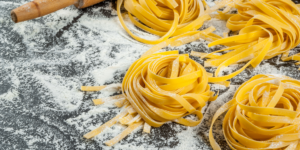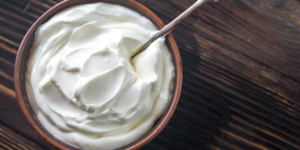Sometimes, you have a freezer full of cooked food, but deciding what to eat becomes burdensome. Other times, you already know what you want to eat, but you just can’t seem to put in the work to make it happen. Meal planning and batch cooking are your saving grace. The duo relieves you of the stress of cooking and thinking about what to eat daily.
Meal planning
This is the act of planning and organizing your meals ahead of time based on available food items and personal preferences.

One useful meal-planning tip is to plan around the food items you have in your pantry or foods that can be easily obtained in stores and markets around you. It would defeat the purpose if you had to drive for hours to obtain an ingredient for your meal. Buying seasonal foods will also help you save a little more money.
If you find it hard to devote more than thirty minutes to activities like cooking, here are a few foods to add to your meal plan.
- Avocado-egg sandwich: Mix an avocado with boiled eggs and spread it on bread. It’s healthy and filling.
- Tuna noodle casserole: This simple and comforting meal is all you need on a cold day.
- Ravioli lasagna: Instead of traditional lasagna noodles, experiment with ravioli. You can enjoy it alone or pair it with a salad.
- One-pot spaghetti bolognese: Entreat yourself with this classic Italian dish, perfect for a family dinner.
What does meal planning help you with?
Better planning, better savings
Buying food in bulk is usually a more economical path than buying small quantities of food every few days. With meal planning, you can buy your ingredients in bulk and then plan your meals based on what you have available.
Moreover, with your meal plan for the week or month, you can create a less-cluttered grocery list and reduce unnecessary spending.
Better planning, better diet
There is a joke that thinking about what to eat is almost more stressful than cooking it. Because of this, after a few minutes of struggling to come up with a meal, many people buy take-outs or fast food, or worse, skip the meal. Besides the fact that doing this often threatens your wallet, it is also a less healthy option. Planning your meals ahead of time removes the stress of thinking about what to eat and helps you stick to a healthier eating pattern.
Better planning, better meals
When you decide what to eat, you will most likely settle for something less nutritious. Making plans ahead of time allows you to pick a healthier, better-balanced meal. While on-the-spot decisions may leave you with 3-minute noodles as a meal option, meal planning could lead you to better decisions like spaghetti and meatballs.
Batch cooking
This is the process of cooking large quantities of food at once, usually in anticipation that it will last for as long as a week or a month. It is otherwise called bulk cooking.

What does batch cooking help you with?
Batch cooking saves you time
If you have a busy season coming up, it will be good for you to have pre-cooked meals you can eat on the go. Bulk cooking does this for you. With this, you can make one week or even one month’s worth of food and keep it refrigerated or frozen until needed. All you have to do is warm the food, and you’re good to go.
Batch cooking reduces food waste
Canned foods and yogurt are meant to be used up as soon as they’re opened. Another option is refrigerating them, which can only last three days. Eventually, it leads to wastage. However, when you batch cook, you use up every bit of ingredient, and with proper food storage, you do not have to throw any food away.
Batch cooking simplifies the cooking process
Not every food can be pre-cooked to be eaten later. Some foods are best eaten fresh or become inedible after using certain preservation techniques, like freezing. A sandwich is one such food. In this case, bulk cooking simplifies the cooking process. You can pre-make the sandwich filling and freeze it until you’re ready to use it.
Batch cooking saves you money
Many times, cooking food in large quantities means buying a large number of ingredients at once. This reduces the cost of buying a few food items every few days. Foods bought in large quantities can be cooked at once and kept until needed.
Before you batch cook

Before batch cooking, ensure you have a stable electricity supply and a freezer or fridge that can support the quantity of food you want. Cooling is one means of preservation. Without a stable electricity supply, the fridge or freezer will stop cooling, and the food will go bad. What’s the essence of having so much cooked food if it cannot be eaten?
Placing your pot directly inside the fridge is not ideal and takes up much more storage space. A few items, like storage bags or containers, will make it more convenient to store your pre-cooked food. But be sure to check that the storage bags and containers are food-grade.
Getting sticky papers or using a sellotape and paper to label the food storage containers and bags may also be useful. Sometimes, the foods may get so frozen that it becomes difficult to differentiate them. These labels will make identifying the food much easier.
Some foods should not be bulk-cooked for long-term preservation. Salads and foods made from vegetables like celery or cabbage should not be kept in the freezer because they become soggy and lose their flavor. Fried foods may also lose their crispy or crunchy texture. Cream-based foods lose their texture and separate upon thawing.
Rice, soups, partly-cooked vegetables, lasagna, and meat-based foods are a few foods that can be batch-cooked and kept in a freezer long-term.
Bottom line
Meal planning and batch cooking often go hand in hand. Eating good meals is less difficult when you have a meal plan and pre-cooked foods at your disposal.











